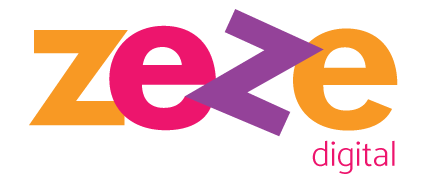In the fast-paced world of marketing, strategic decision-making is the compass that guides businesses toward growth and success. Marketing agencies, as the architects of brand strategy and campaign execution, play a pivotal role in driving strategic decision-making for their clients. Let’s explore why strategic decision-making is crucial in the realm of marketing agencies and how it empowers businesses to achieve their objectives and stay ahead of the competition.
Understanding the Importance of Strategy: Strategy is the roadmap that guides businesses toward their goals and objectives. Marketing agencies recognize that strategic decision-making is fundamental to success, as it determines the direction, scope, and focus of marketing efforts. By aligning marketing strategies with business objectives and market dynamics, agencies ensure that their clients’ efforts are targeted, purposeful, and effective.
Leveraging Market Insights: Strategic decision-making begins with a deep understanding of the market landscape. Marketing agencies conduct comprehensive market research, competitive analysis, and consumer insights studies to gather valuable intelligence about market trends, customer preferences, and competitor strategies. By leveraging these insights, agencies provide clients with a clear understanding of the opportunities and challenges that lie ahead, enabling informed decision-making.
Setting Clear Objectives and Goals: Clear objectives are the foundation of effective strategic decision-making. Marketing agencies work closely with clients to define measurable goals and key performance indicators (KPIs) that align with their business objectives. Whether it’s increasing brand awareness, driving website traffic, or boosting sales, agencies ensure that objectives are specific, achievable, and relevant to the client’s overall strategy.
Analyzing Data for Informed Decisions: Data-driven decision-making is at the heart of strategic planning in marketing agencies. Agencies analyze a wealth of data, including customer demographics, website analytics, social media metrics, and campaign performance data, to glean valuable insights that inform decision-making. By leveraging advanced analytics tools and methodologies, agencies provide clients with actionable intelligence that drives informed decisions and maximizes ROI.
Identifying Target Audiences and Segments: Effective marketing begins with a deep understanding of the target audience. Marketing agencies conduct audience segmentation and persona development to identify and prioritize key audience segments based on demographic, behavioral, and psychographic factors. By tailoring marketing messages, offers, and experiences to the specific needs and preferences of each segment, agencies ensure that their clients’ efforts resonate with the right audiences and drive engagement.
Crafting Integrated Marketing Strategies: Strategic decision-making in marketing agencies involves crafting integrated marketing strategies that leverage multiple channels and tactics to achieve client objectives. Agencies develop comprehensive marketing plans that encompass a mix of digital and traditional channels, including social media, email marketing, content marketing, advertising, and events. By orchestrating a cohesive and integrated approach, agencies maximize the impact of their clients’ marketing efforts and create seamless brand experiences for customers.
Evaluating Risks and Opportunities: Strategic decision-making also involves evaluating risks and opportunities inherent in any marketing initiative. Marketing agencies conduct risk assessments and scenario analyses to identify potential challenges and develop contingency plans to mitigate them. By proactively addressing risks and capitalizing on opportunities, agencies help clients navigate uncertainties and stay agile in a rapidly changing marketplace.
Measuring Performance and Iterating: Strategic decision-making doesn’t end with implementation—it involves continuous monitoring, measurement, and iteration. Marketing agencies track campaign performance against established KPIs, gather feedback from customers, and conduct post-campaign analyses to evaluate success and identify areas for improvement. By measuring performance and iterating on strategies based on insights, agencies ensure that their clients’ marketing efforts remain aligned with their objectives and adapt to changing market conditions.
In conclusion, strategic decision-making is the cornerstone of success in marketing agencies. By leveraging market insights, setting clear objectives, analyzing data, identifying target audiences, crafting integrated strategies, evaluating risks and opportunities, and measuring performance, agencies empower their clients to make informed decisions that drive growth and success. In an increasingly competitive and dynamic marketplace, the ability to drive strategic decision-making is what sets top-performing marketing agencies apart and ensures their clients’ continued success in the long run.
